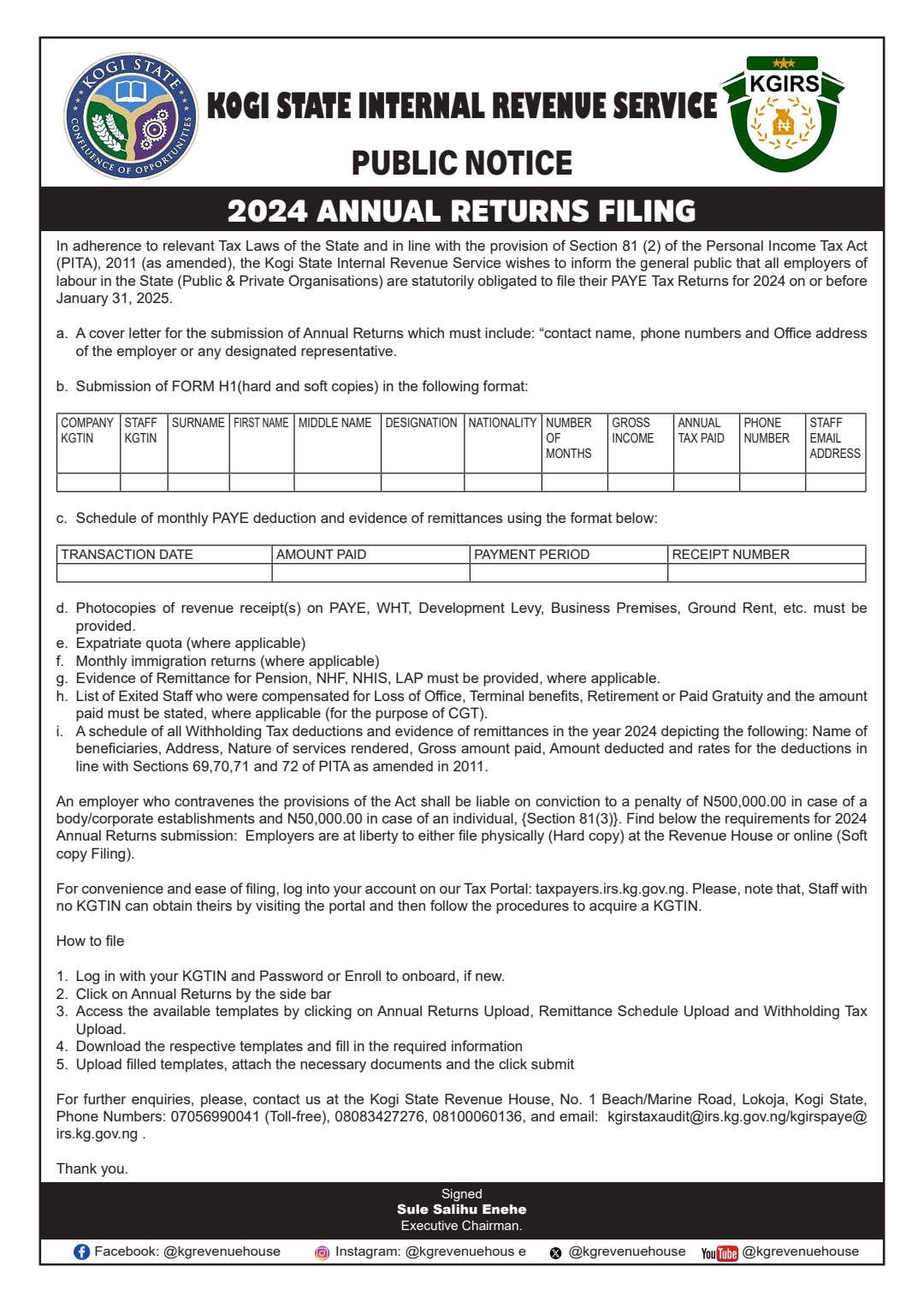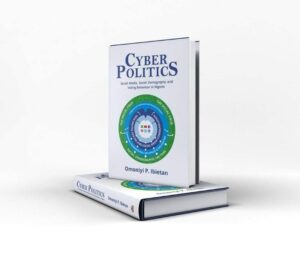

(News Analysis).
By Dada Ahmed.


Dr.Aminu Maida,
EVC,NCC.
To many, particularly the uninformed segment of the Nigerian population, there is hardly any relationship between cyber, social media and politics.
One may not blame these Nigerians as intellectual discourse on this subject matter is evolving in Nigeria.

The author.
Therefore, this class of the people in the country see cyber and social media issue within the confined definition of cyber relating to, or involving computers or computer networks, having in mind the Internet and other cyber networks.
In the same vein, they do not see politics transcending the real of winning an election and sharing of political appointments as well as guiding or influencing governmental policies and programmes.
They equally agree with the concept of government being the art or science concerning holding control over a government. Therefore, to them,there is no correlation between cyber and politics.
However,an Artificial Intelligent(AI),a language model, called Chat GPT 3.5, looks at the relationship between cyber and politics beyond narrow perspective by examining the issue on a much wider spectrum and arrived at informed conclusion, using the concept of symbaotic parameter.
The seeming differences in contextual meaning of cyber and politics notwithstanding,the AI describes cyber security as crucial in protecting government systems, elections, and sensitive information from cyberattacks, adding that politics often shape cybersecurity policies and regulations.
“Additionally, with cyber activities like hacking and disinformation, campaigns can influence political events and elections.
“There’s a significant relationship between social media, social demography, and voting behavior in Nigeria.
“Social media has become a prominent platform for political discourse, influencing public opinion, especially among the youth demographic.
“Social demography, including factors like age, education, and urbanization, can affect how individuals engage with social media and how they form their political opinions.
“The influence of cyber on political activities, in turn, can influence voting behavior as social media campaigns and discussions can sway perceptions and decisions”, according to the AI.
A conscious attempt to provide more insights into relationship between cyber and politics by an individual may have given rise to the birth of a book recently launched in Ibadan,the Oyo state capital.
On April 19,2024, an array of professionals, ranging from mass communication gurus, egg heads from the nation’s ivory towers, politicians, members of business community and other segments of the Nigerian society converged in Ibadan,Oyo state, south west Nigeria to witness an event to behold.
The launching of the Special Book Reading and Further Reviews of, entitled , “Cyber Politics: Social Media, Social Demography and Voting Behaviour in Nigeria”,took place at the University of Ibadan, Nigeria’s premier University.
The Book, authored by Omoniyi Ibietan, PhD, Head, Media Relations Management at the Nigerian Communications Commission, NCC, has been described as a master piece of intellectually enriching master piece, capable of proving deeper understanding of the relationship between cyber and politics in Nigeria.
By way of a little digression,it is instructive to note that, NCC is charged with the responsibility of creating an enabling environment for competition among operators in the telecommunication industry and ensure the provision of qualitative and efficient telecommunications services throughout the country.
The event was characterised by various goodwill messages delivered by critical stakeholders in telecomms industry in Nigeria, including the Executive Vice Chairman of the Nigerian Communications Commission,NCC, Dr.Aminu Maida.
Dr.Maida in his goodwill message, entitled, ” Cyberpolitics and the Re-engineering of Political Communication in Africa”,did not mince words as he used the opportunity of the occasion to highlight the importance of cyber to political activities as well as praised the author for a good job.
He said:” Without any doubt, the Internet and its associated technologies and tools, including software applications, have created some of the most radical possibilities in the human experience, particularly in the last decade.
“These have certainly extended the frontiers of human freedoms and expression, while similarly enabling innovation across different forms of utilisation, and more so serving as catalyst to the ability of citizens to engage with political processes – for good and for bad.
“Despite an earlier period in which there were deliberations on the possible roles and impacts of digital platforms, such as the social media on political participation and elections, the increased access to the Internet and broadband, alongside the wider uptake of social media as essential to human reality, have made the interface between these platforms and elections a lot clearer.
“This has especially been evident in the last few electoral cycles, whether in the United States, Europe, or Nigeria.
“The 2008 presidential election in America could be considered as the watershed moment for a new form of voting behaviour, evolving with the widespread usage of platforms like Facebook, MySpace, YouTube, podcasting and mobile messaging in the communication of political interests with citizens.
“Dr. Ibietan’s path-breaking book, Cyber Politics: Social Media, Social Demography, and Voting Behaviour in Nigeria, broaches a radical new territory in bridging psephology (i.e. the study of elections) and communications scholarship through an examination of the interface between social media networks and voting behaviour in the country.
“It draws its insights from a deeply methodical study of Nigeria’s 2015 presidential election, unearthing the intersections of social and demographic factors, digital social mediation and the remarkable impact of these variables on the voting behaviour of the electorate.
“It is worthy of note that the referenced national polling presented one of the most significant evidence of how social media use can shape the course of an election, having the then political opposition gaining huge mileage from its ability to deploy social media platforms towards shaping and controlling public debates, and hence triumphing at the ballot.
“These days, the preponderance of data more easily reveals the impact of social media on political engagement and elections, both in emergent and evolved democracies. It requires little clairvoyance that with the spike in upheavals, instigated by economic dysfunctions across the world, social media will certainly play more consequential roles in driving electoral choices going forward.
“Dr. Ibietan’s book speaks to the reality of how the demographics of voting is now in favour of digital natives, whose engagements are set to upend the traditional media approaches, hence the great value in seeking an understanding of the growing interface across cyber politics, social media networks and social demography. Specifically, the author utilises tested theoretical models and research methods to scrutinise the impact of social media on contemporary politics.
“Most significantly, the cutting edge of this vibrant scholarly endeavour is its proposal of a bold new methodology and approach to communications, described as the Channel-Factor Model, which situates the relationship among social media and other variables within a political environment. It is a framework for re-engineering political communication in Africa that is as radical as it is innovative.
“Cyber Politics: Social Media, Social Demography and Voting Behaviour in Nigeria”, is an absorbing and persuasive book that adds huge insightful value to an understanding of the interactions between politics, social media networks and other variables that influence the behaviour of voters in a democracy.
“Therefore, we particularly appreciate Dr. Omoniyi Ibietan, a staff of the Nigerian Communications Commission, for this contribution to political communication scholarship.
Contributing to the goodwill galore,Umaru A. Pate,Professor of Media and Society.and Vice Chancellor, Federal University, Kashere, Gombe State, said the book provides academic community and communication scholarship require a deeper understanding of the evolving trend, influence, and impact of cyber politics in the country.
“I am glad Dr. Ibietan has been able to undertake intensive and extensive research in the area. Happily, the study has been transformed into a textbook for wider circulation.
Pate, who is also the President, Association of Communication Scholars and Professionals of Nigeria (ACSPN), said that the author, being an active member of the ACSPN, is in the frontline of promoting some of the Association’s objectives of promoting innovative communication education through publications and other knowledge sharing platforms.
He noted that a cursory reading of the book indicates that the author has been able to achieve the objectives of contributing to the conceptual and empirical dimensions of the subject in the context of political communication.
“Personally, I am enriched by the arguments and conclusions in the book. The book has increased my understanding of the relationship between the ever-growing social media and politics in the country. This is very important for obvious reasons, some of which relate to the popularity and influence of the new media, particularly among the most active components of the population,”he remarked.
Pate,who described the book as a positive addition to the growing body of literature in the area,especially as it gives the Nigerian context, strongly recommended it as a worthy book for all students of communication studies, political science and allied fields.
He expressed optimism that that Nigerian political tacticians and gladiators as well as other scholars of the interface between society and information and communication technologies would find the text appropriate and generously useful in helping them to deeply understand the strategies and impact of the social media in Nigerian politics.
“Definitely, the author’s effort is clearly manifested in the quality of the content in the book, its appropriate theoretical grounding, and sound conclusions that are reliably valid in the Nigerian context,”according to the don.
There is little doubt that the Nigerian university community and other similar institutions, and those beyond the shores of the country have been enriched with an intellectual property that about the relationship between cyber and politics in a better and deeper understanding and meaning.
Therefore, it beholds on other intellectuals in Nigeria to consolidate on the solid effort built by Dr. Omoniyi Ibietan in providing Nigerians, particularly, members of the political class, deeper understanding of the relationship between politics and cyber.
This will go along way in sanitizing the political climate in Nigeria and bring about peace and tranquility into the nation political process and system.
Dada Ahmed publishes The Reporters.

